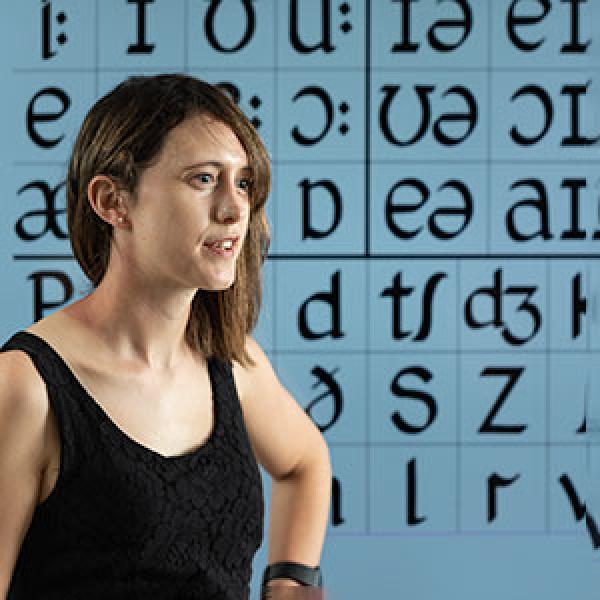30th September 2019
Many teachers consider doing further qualifications to improve their teaching knowledge and skills, but sometimes it can be difficult to choose which course is right for you. For those of you that already hold a Cert TESOL (or equivalent) certificate and have at least two years of post-cert experience, you may know about the Trinity Diploma in Teaching English to Speakers of Foreign Languages (DipTESOL). This blog will explore what it is and how it can transform your teaching career.
The Trinity DipTESOL is a qualification aimed at currently practicing ESOL/TEFL teachers. It is placed at level 7 on the UK Ofqual Regulated Qualifications Framework, and European Qualifications Framework which means the level of study is equal to that of a master’s degree and other post-graduate degrees. Having done the DipTESOL myself and now in my role as a DipTESOL internal assessor, I have also seen many teachers go through the same process. I've identified the following reasons why the DipTESOL could be the next logical step for experienced teachers of English as a second language:
1) Career development
If you have been teaching for a long time and are feeling the need for a change, then the DipTESOL could help you to make the switch into a new role. According to the Trinity website, the DipTESOL enables holders to move into roles such as teacher educators, examiners and centre managers. It could also give you the knowledge and expertise to move into other ESOL related fields, such as content writing or ELT publishing. I've found the DipTESOL provided a way to develop the skills I needed to make a transition from teacher to teacher trainer. The qualification focuses not just on teacher knowledge, but also on how we can develop as teachers and help other teachers to develop too. Through the Unit 2 projects: the Teacher as Developmental, Reflective Practitioner, you will have the opportunity to choose areas of interest related to TESOL and conduct three small scale research projects. In the exam (Unit 1 Language, Teaching and Learning), there is a whole section dedicated to professional development. This means there are plenty of opportunities to align your professional development goals to your studies. You could even end up presenting your findings at a conference or publishing one of your projects as a journal article.
2) Transform your approach to teaching
For me, perhaps the most rewarding aspect of the DipTESOL is the way it can transform your teaching practice. You are encouraged to focus on all aspects of your teaching (from context setting to differentiation techniques) and the teaching practice gives you the opportunity to work on specific areas, while receiving rigorous and extensive feedback. There is also a strong emphasis on reflection and evaluation. You will be required to self-reflect after every class and keep a teaching practice journal. Evaluation also forms a big part of the teaching practice and your final grade for the unit. You will have a 30 minute meeting after each class, in which you will be required to discuss all aspects of your lesson in detail and then receive constructive feedback from the assessor. In the past, trainees have mentioned this was the part of the course that had the biggest impact on their own development as a teacher and made them re-evaluate the way they teach in their regular teaching contexts. This is the part of the course where you can demonstrate your ability to apply theory and justify your teaching methodology. The detailed lesson plans that you produce will also give you practice in creating comprehensive class profiles and rationales for every aspect of your lesson.
3) Develop confidence and competence in phonology
Have you ever felt uncomfortable teaching pronunciation? Are you familiar with the IPA but struggle with transcription or how best to use it in the classroom? Many teachers shy away from teaching phonology and prefer to focus on teaching grammar and vocabulary. However, it is one of our functions as teachers to assist learners in developing their productive and receptive pronunciation skills. Learners are also keen to receive feedback on their pronunciation errors, but this can be difficult for teachers if they lack the background knowledge of why learners make these errors or how to correct them. The phonology unit on the DipTESOL often fills teachers with dread, but afterwards teachers emerge from the course with a new-found confidence and often find that phonology becomes a key part of their teaching practice and something they can integrate into all their classes. Integrating phonology into the teaching of grammar and lexis also makes the pronunciation section of the class more meaningful.
4) Practical application both in the classroom and the workplace
Some teachers may have difficulty choosing between whether to study for an MA in TESOL or a DipTESOL. Many master’s degrees in TESOL related subjects are mostly theoretical and only a few have a practical component. If you want to purely develop your academic ability in the field, you can do an MA in TESOL, but the DipTESOL is suitable for teachers who want a more practical qualification. There are opportunities to transfer credits from the DipTESOL to an MA programme (For example, The Open University in the UK). Another difference between a DipTESOL and a master’s degree is that you complete three mini-research projects that require you to create an observation tool, develop an area of your teaching and conduct a study into an area of TESOL that interests you (this could be something related to training, content writing, teacher development or even starting a reading scheme in your school to develop literacy skills). You can choose topics for your assignments that could have a real impact on your teaching practice and in your school/workplace.
5) Improve your language awareness
Everyone has experienced a moment in their teaching career when they have been totally stumped by a student question. Language awareness is something that teachers need to develop throughout their career. Native speakers especially will most likely remember having to re-learn (or sometimes learn for the first time!) the tenses and other English grammar rules for their Cert TESOL or CELTA. The DipTESOL allows you to deepen your knowledge, so you feel more confident inside and outside the classroom when it comes to explaining the language to both students and peers. The DipTESOL will give you a heightened awareness of grammar, lexis, discourse and phonology, which will be especially useful for those teaching advanced learners in any context. This in-depth understanding would also be beneficial for those teachers wanting to write course curriculums and ELT materials.
DipTESOL trainees will also be encouraged to keep abreast of the latest developments in their industry and become an engaged practitioner. The course is a big commitment, as it requires you to dedicate a large proportion of your free time to independent study and may also be challenging for those who find it hard to keep motivated over a long period of time without constant face to face interaction. However, if you have an interest in your own continuing development, a desire to mentor less experienced teachers, or conduct research projects in the field, then the DipTESOL may be an investment well-worth considering.
For more specific information about the course, you can refer to the Trinity College website or keep a look out for our upcoming DipTESOL taster workshops held throughout the year.



